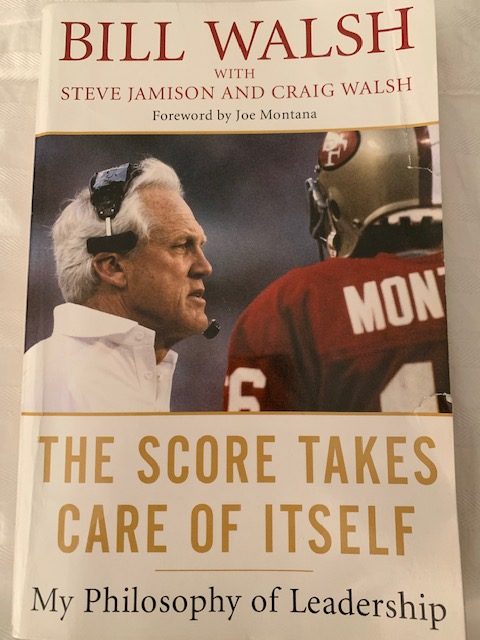The NFL Legend Who Showed You Shouldn’t Be Obsessed with Winning

Bill Walsh’s The Score Takes Care of Itself might sound like a typical business leadership book. Mr. Walsh, who died in 2007, won three Super Bowls as head coach of the San Francisco 49ers from 1979 to 1988. He urged leaders to embrace altruistic leadership, look for mentors, be emotionally intelligent, and overcome their egos. Those exhortations are practically obligatory in the genre.
Mr. Walsh’s call for leaders to embrace the process of leadership rather than the results is not exactly groundbreaking, either. Hardly any author in the genre anymore echoes the line from Green Bay Packers Head Coach Vincent Lombardi, probably apocryphal, that “winning isn’t everything; it’s the only thing.” What distinguishes The Score Takes Care of Itself is the author cops to failing to live up to his cherished principle occasionally.
In his last two years as the 49ers head coach, by his own admission Mr. Walsh did not let the score take care of itself. He attempted to control it.
He overworked his players, to which he attributes the team’s loss to the Minnesota Vikings in the NFC division-round playoffs in the 1987 season. And he overworked himself, which CBS Sports caught on camera after the 49ers defeated the Bengals to win Super Bowl XXIII and Mr. Walsh began to sob. He said in his 10 years at the helm, his family took no vacations. As he wrote,
The pursuit of the prize had become an exercise in avoiding pain; the expectations had become unbearable; the behavior of one owner had become—on occasion—unacceptable, and the responsibilities I took on, coupled with the pressures I put on myself, were unmanageable. Or so it seemed. A profession I had loved and worked for all my life had gone from being joyful to unenjoyable to unendurable. I couldn’t win when I won. There were no points in winning and thus no point in continuing.
More than any book of a leader that comes to mind, The Score Takes Cares of Itself shows the cost of intemperance and obsessiveness. Mr. Walsh shows real regret about his overwork. He said it cost him two more Super Bowl titles. (The 49ers won the Super Bowl following Mr. Walsh’s retirement in 1989 but alas, to this lifelong Niners fan, not in the 1990 season). More importantly, it cost him a feeling of communion with his players and coaches. He seems more haunted by this loss than any game he played or coached.
Yet Mr. Walsh was no object lesson in the perils of overwork. If this book is a sign, for most of his 10 years he loved being the 49ers head coach. He talked rapturously about devising new plays to fool the other team and selling them to his guys and reverently about teaching others:
When I look back at on my years as an assistant coach and head coach what gives me great satisfaction is not necessarily a Super Bowl championship or an award, but the experience of recognizing ability in a person and then teaching that individual how to reach his potential in ways that helped our team. The process—seeing someone I had evaluated, selected, and taught break out and do great things—is really what it’s all about for me, the source of my greatest pleasure in leadership.
Those aren’t idle words. Mr. Walsh means them. More than his lack of example than anything else, he showed that winning isn’t everything. Enjoy the process, he wrote. Certainly, you have more control over it than the outcome.

0 Comments